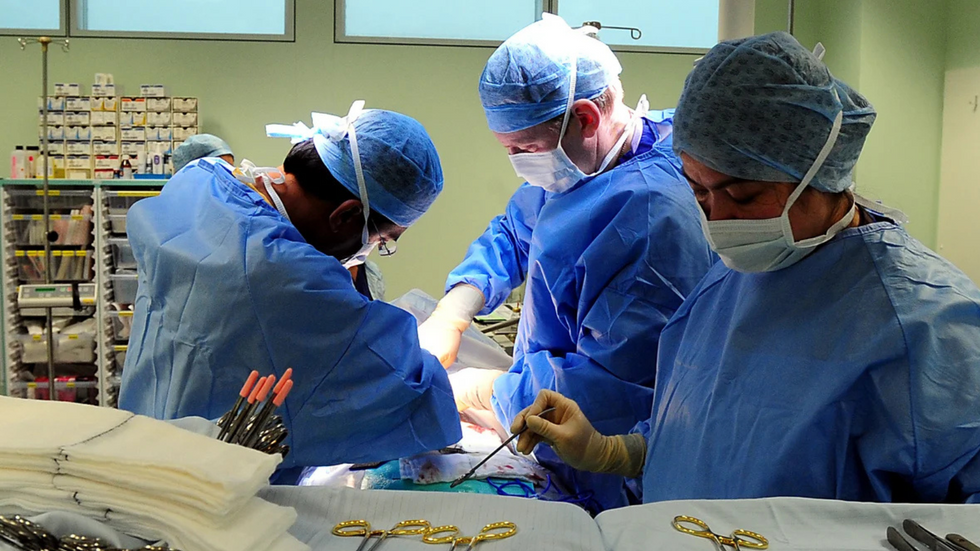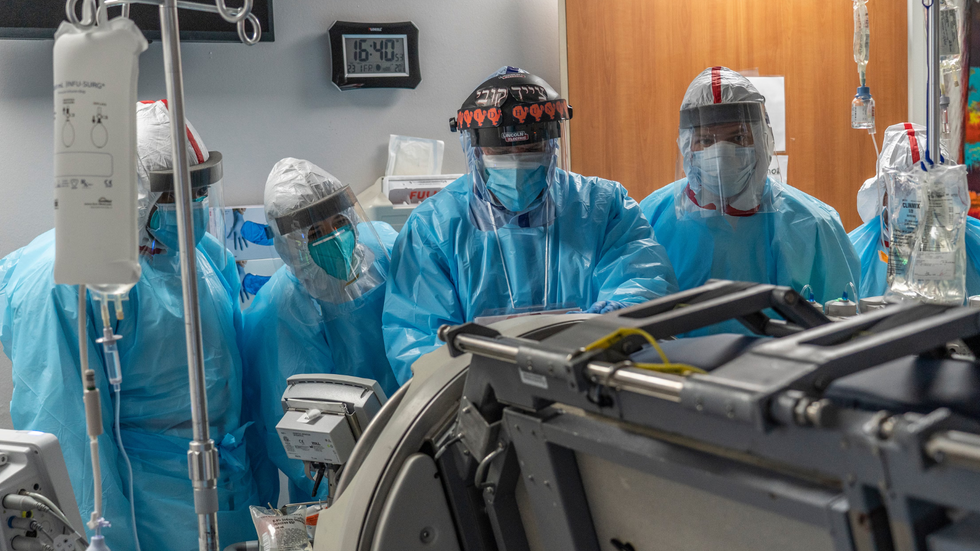WATCH: GB News Health Editor Lucy Johnston discusses the rise in UK abortions
GB NEWS
One nine-year-old boy received a heart from a three-year-old girl who had drowned - then developed an intense fear of water
Don't Miss
Most Read
Trending on GB News
Organ transplant recipients may inherit memories and personality traits from their donors, a groundbreaking new study has suggested.
Recipients have reported unexpected changes in their emotions, eating habits, music taste and even sexual orientation following their procedures.
The findings, detailed in a research review published earlier this year by a team from Bahrain and Saudi Arabia, look to challenge our understanding of memory and identity - but other researchers aren't so sure.
Though the phenomenon is particularly prevalent among heart transplant recipients, changes have also been seen in those who received kidneys, lungs and facial transplants.

Organ transplant recipients may inherit memories and personality traits from their donors, according to the research review
PA
One of the most striking cases is that of a nine-year-old boy who received a heart from a three-year-old girl who had drowned.
Despite having no knowledge of his donor's cause of death, the boy developed an intense fear of water.
In another remarkable case, a college professor who received a heart from a police officer killed in the line of duty began experiencing unusual sensations.
The professor reported seeing "a flash of light" in front of his eyes and described that his face would become intensely hot, saying: "My face gets real, real hot. It actually burns."
LATEST HEALTH UPDATES FROM GB NEWS:

The findings look to challenge our understanding of memory and identity - but other researchers aren't so sure
GETTY
The research review says: "Emerging evidence suggests that heart transplantation may involve the transfer of the donor's personality traits and memories to the recipient, challenging conventional views of memory and identity."
The Saudi-Bahraini team believes the changes could be due to 'cellular memory' - a much-debated hypothesis which alleges that the body, not just the brain, is capable of storing memories.
Several cases have seen dramatic changes in food preferences following transplants.
In a 2002 case study, a health-conscious dancer developed an unexpected craving for fried chicken after her operation - and it later emerged that uneaten KFC nuggets had been found in her donor's jacket when he died.
Meanwhile, a 29-year-old woman who received a heart from a vegetarian donor suddenly developed an aversion to meat.
Apparent changes in sexual orientation have also been observed, with a gay male recipient of a lesbian artist's heart reporting increased attraction to women.
Similarly, a lesbian recipient of a heterosexual woman's heart began experiencing attraction to men post-transplant.
But some experts offer alternative explanations for these reported changes.
Scientists at Canada's McGill University suggest that immunosuppressant medications required after transplants can increase patients' appetite, potentially explaining their shifts in eating habits.
And some researchers believe the cases may just be circumstantial - and have said the changes in attitude stem from expected psychological responses to major surgery.
Though there's still work to be done - researchers have called for more in-depth interdisciplinary studies to fully understand the phenomena.








